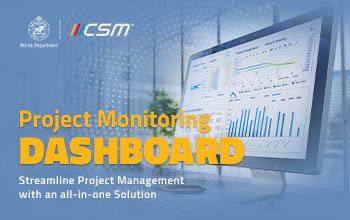Startup incubators are pivotal in nurturing early-stage businesses through mentorship, infrastructure, funding access, and networking opportunities. Africa’s startup ecosystem has been experiencing exponential growth, with over 640 active incubators and accelerators across the continent, supporting thousands of entrepreneurs in sectors such as fintech, AgriTech, health tech, and e-commerce. According to the African Tech Startups Funding Report 2023, African startups raised over $5 billion in funding, highlighting the increasing global interest in the region’s innovation potential. However, managing incubation programs efficiently remains challenging due to the complexity of operations, stakeholder management, and resource allocation. This is where an Incubation Management System (IMS) becomes essential in streamlining processes and enhancing the effectiveness of incubation programs.
.jpg)
What is an Incubation Management System?
An Incubation Management System (IMS) is a digital platform designed to automate and optimize various aspects of business incubation. It enables African incubators to efficiently manage applications, mentorship programs, funding allocations, progress tracking, and overall operational workflows. By leveraging technology, IMS enhances transparency, accountability, and efficiency in incubation management, ultimately increasing the success rate of startups across the continent.
Key Features of an Incubation Management System
The application and selection management process is streamlined through an online portal where startups can submit proposals. The screening and selection process is automated using AI-powered analytics, allowing reviewers and mentors to assess applications based on predefined criteria. In Africa, where many entrepreneurs operate in informal sectors, IMS can help bridge the digital gap by providing structured onboarding and application processes. Mentorship and training programs facilitate mentor-mentee matchmaking based on industry expertise and startup needs. An integrated learning management system (LMS) provides training modules, webinars, and workshops while tracking mentorship sessions and feedback for continuous improvement. Funding and financial management tools streamline grant applications, investor matchmaking, and funding disbursement tracking, addressing a key challenge for African startups: access to capital. Integration with accounting systems ensures real-time financial monitoring and compliance, with detailed financial analytics measuring fund utilization and ROI.
Startup progress monitoring tracks key performance indicators (KPIs) such as revenue growth, market expansion, and product development. Predictive analytics assess startup success probabilities and generate automated reports for stakeholders, including investors, government bodies, and incubator managers. Networking and collaboration tools facilitate interactions between startups, mentors, investors, and corporate partners. Integrated communication channels like chat, video conferencing, and discussion forums encourage knowledge-sharing through industry events and community engagement platforms. Resource and infrastructure management enables the booking and allocating of co-working spaces, labs, and other incubation facilities. It also manages digital resources such as software licenses, cloud storage, and intellectual property (IP) portfolios, while IoT-based smart facility management optimizes resource usage.
Benefits of an Incubation Management System
.jpg)
By automating administrative tasks, IMS reduces the workload on African incubation managers, allowing them to focus on strategic activities such as business development and funding partnerships. Advanced data analytics and AI-driven insights enable incubators to make informed decisions regarding startup selection, funding distribution, and performance evaluation. With structured mentorship, funding support, and performance tracking, African startups have a higher chance of surviving and scaling in competitive markets. IMS ensures that incubators adhere to compliance requirements and funding regulations while maintaining transparency in operations, which is crucial for investor trust. IMS platforms are scalable, catering to incubators of different sizes and sectors, from university-based incubators to government-led innovation hubs and private-sector accelerators focusing on industries like agriculture, renewable energy, and digital services.
Challenges in Implementing an Incubation Management System
Deploying a full-fledged IMS in Africa can be expensive, requiring significant software, training, and infrastructure investment. Many incubators operate on limited budgets, making it challenging to adopt sophisticated digital tools. Handling sensitive startup data, including business strategies and financials, requires robust cybersecurity measures to prevent data breaches, particularly in regions where digital literacy and cyber protection measures are still developing. Some incubators, especially those in rural and emerging markets, may face resistance from stakeholders reluctant to shift from traditional incubation models to digital systems. Limited internet connectivity in some areas of Africa also challenges implementing fully digital IMS solutions.
Future Trends in Incubation Management Systems
IMS platforms increasingly incorporate AI-driven decision-making tools to predict startup success and recommend personalized growth strategies. In Africa, where mobile-first solutions dominate, mobile-based IMS applications are becoming more prevalent, allowing entrepreneurs to access incubation services remotely. Blockchain technology is being explored for secure, transparent, and tamper-proof funding allocation and tracking, ensuring that investments reach the right startups without corruption or mismanagement. Future IMS solutions will emphasize global networking, enabling African startups to collaborate with international investors, research institutions, and markets. With the rise of remote work, IMS is evolving to support hybrid incubation models, allowing African startups to access resources and mentorship virtually, reducing the need for physical infrastructure, and broadening access to global expertise.
Conclusion
The role of Incubation Management Systems in shaping Africa’s startup ecosystem is becoming increasingly critical. With hundreds of incubators supporting thousands of entrepreneurs across the continent, the need for a streamlined, technology-driven approach to incubation management has never been greater. By adopting IMS, African incubators can enhance efficiency, improve startup success rates, and drive innovation in a structured and scalable manner. As AI, Blockchain, and mobile-based solutions evolve, IMS will be more transformative in fostering Africa’s next generation of entrepreneurs and business leaders.
CSM was empaneled with STPI- an incubation center with four modules: HRMIS, Project Monitoring & Control (PMC), Infrastructure Management, and Miscellaneous. The PMC module was converted to COE operations for STPI HQ, Pan-India Roll out for 250 COEs. The CoE is an extended version of the STPI incubation center facility, which is being taken care of by one more sub-legal entity called STPI NEXT. This is the central backbone of all the 250 COEs and creates a collaborative system where startups, mentors, investors, and other stakeholders discover each other.


























































We will verify and publish your comment soon.